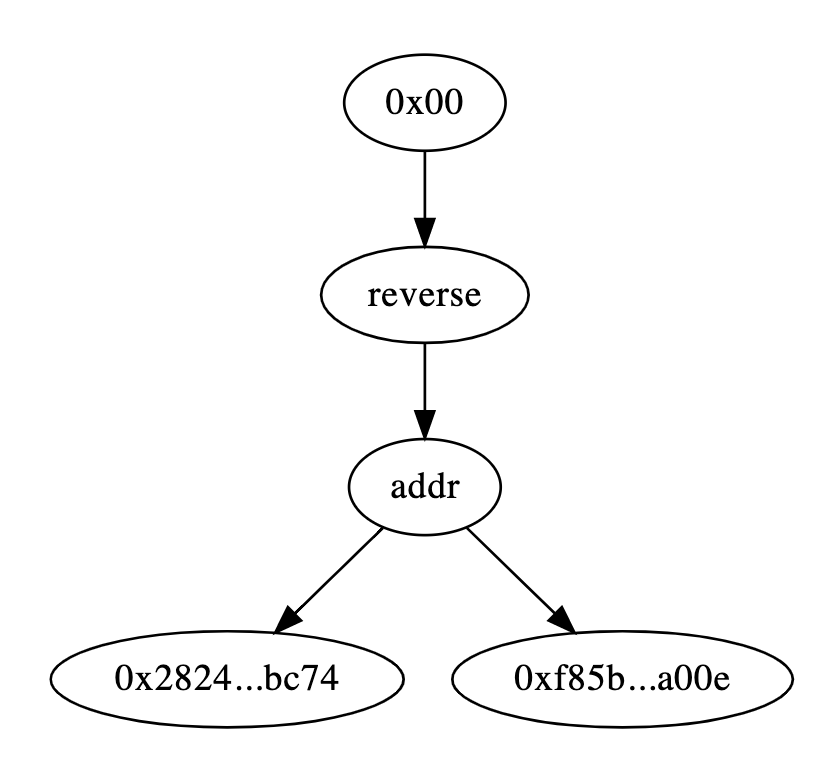Reverse suite
Reverse RNS records are stored in the RNS hierarchy in the same fashion as regular records, under a reserved domain, addr.reverse.
Compatible with EIP-181.

Reverse resolving
To generate the RNS name for a given account's reverse records, convert the account to hexadecimal representation in lower-case, and append addr.reverse. For instance, the RNS registry's address at 0x112234455c3a32fd11230c42e7bccd4a84e02010 has any reverse records stored at 112234455c3a32fd11230c42e7bccd4a84e02010.addr.reverse.
function reverseResolve (address) {
const reverseName = `${address.slice(2).toLowerCase}.addr.reverse`;
const node = namehash(reverseName);
const resolver = rns.resolver(node);
const name = resolver.name(node);
return name;
}Ensure a reverse lookup
As the owner of the reverse-node is able to set any name as resolution after claiming, it is important to ensure the resulting `name` is used in the forward-resolution. To do so you might query the name's address resolution.Register a reverse resolution
The owner of the addr.reverse domain is a registrar that permits the caller to take ownership of the reverse record for their own address.
function registerReverse (address, owner) {
reverseRegistrar.claim(owner, { from: address });
}